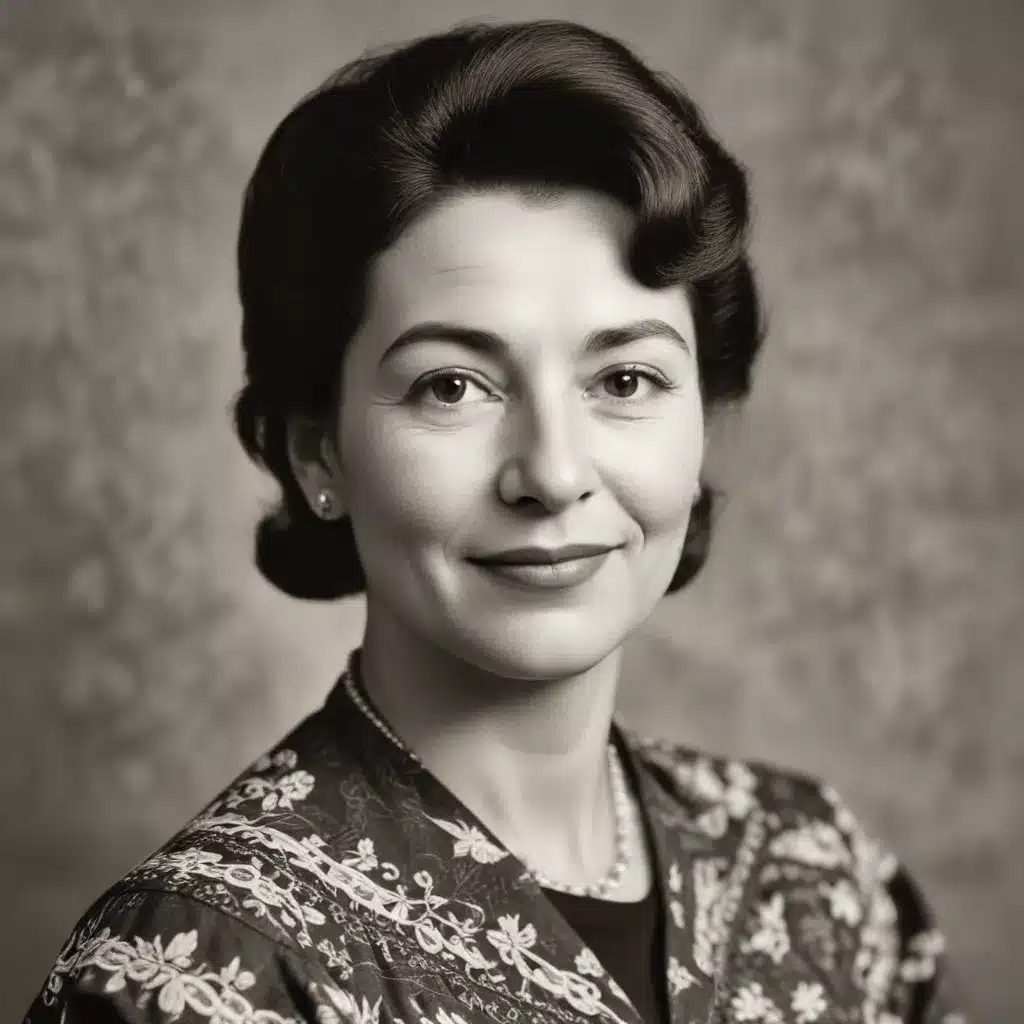
A Life of Service and Advocacy
Thelma Chalifoux’s remarkable life story is one of resilience, determination, and unwavering commitment to improving the lives of Alberta’s Indigenous communities. As the first Métis woman to serve in the Canadian Senate, Chalifoux’s legacy extends far beyond her political achievements, encompassing a lifetime of grassroots activism, community service, and a relentless pursuit of justice and equality.
Born in 1929 in Calgary, Alberta, Chalifoux’s early years were marked by the hardships of the Great Depression. Her Métis heritage, which traced back to the historic communities of St. Albert and Lac Ste. Anne, instilled in her a deep pride and sense of responsibility to her people. From a young age, Chalifoux was no stranger to adversity, working to contribute to her family and community while facing the challenges of being a single mother and navigating the devastating impacts of the Sixties Scoop.
Overcoming Adversity and Serving the Community
Chalifoux’s personal experiences with domestic violence and the systemic removal of Indigenous children from their families would become the driving force behind her lifelong commitment to advocacy and community service. After having her own children taken from her by the government in 1958, Chalifoux resolved to fight the system, returning to school to finish her high school education and secure employment.
This determination to improve the lives of others would shape Chalifoux’s future endeavors. She became actively involved with organizations such as Indian Rights for Indian Women (IRIW) and the Voice of Alberta Native Women’s Society (VANWS), working tirelessly to address the challenges facing Alberta’s Indigenous communities.
Pioneering Leadership and Advocacy
Chalifoux’s leadership and influence extended far beyond these grassroots organizations. In the late 1960s, she joined the Métis Association of Alberta (MAA), taking on the role of a fieldworker and traveling across the province to support local communities. During her time with the MAA, Chalifoux was instrumental in expanding the organization, establishing its welfare and land departments and applying her knowledge of land claims.
Chalifoux’s dedication to education and community development was also evident in her work in Slave Lake, where she spent the next 12 years. In Slave Lake, she co-founded the Slave Lake Native Friendship Centre, the first of its kind in the area, and established the region’s first shelter for victims of domestic violence. Chalifoux also played a pivotal role in getting the Cree language taught in northern schools and producing a Métis culture and history curriculum guide for grades four to six.
A Trailblazing Senate Career
Chalifoux’s pioneering spirit and commitment to public service reached new heights in 1997 when she became the first Métis woman to be appointed to the Canadian Senate. As a Senator, Chalifoux continued to champion the causes she had dedicated her life to, focusing on Métis and women’s issues, as well as broader concerns such as genetically modified foods, environmental legislation, and the relationship between the federal government and the pharmaceutical industry.
During her time in the Senate, Chalifoux served as the Chairperson of the Senate Standing Committee on Aboriginal Peoples, where she appointed a task force to explore the issue of Indigenous youth gangs in Edmonton. This task force engaged extensively with the community, seeking input from Indigenous leaders, groups, youth, and Elders.
Chalifoux’s contributions in the Senate also included her involvement in the Gathering Strength report of 1997, an action plan that addressed renewing Canada’s relationship with its Indigenous peoples. Additionally, in 2001, she championed the proposed Louis Riel Act, which aimed to revoke Riel’s conviction of high treason and acknowledge the contributions of Riel and the Métis people to Confederation.
Preserving and Promoting Métis Culture
After retiring from the Senate in 2004, Chalifoux continued to make a lasting impact on her community. She founded the Michif Cultural Institute (now Michif Cultural Connections) in St. Albert, Alberta, dedicated to preserving, promoting, and celebrating the province’s rich Métis history through classes, workshops, and events.
Chalifoux’s commitment to her community also led her to push for the creation of the Meadowview Centre for Women’s Health and Wellness in St. Albert, a recovery centre that opened in 2011. Her tireless efforts to support and empower Indigenous women and families remained a driving force throughout her life.
Leaving a Lasting Legacy
Thelma Chalifoux’s life story is a testament to the power of resilience, compassion, and unwavering dedication to one’s community. Her remarkable journey, from overcoming personal adversity to becoming a trailblazing political leader and advocate, has left an indelible mark on Alberta and the nation as a whole.
As the Stanley Park High School community reflects on the lives of inspirational women like Thelma Chalifoux, we are reminded of the importance of embracing our diverse heritage, standing up for social justice, and empowering the next generation to create positive change. Chalifoux’s legacy continues to inspire and guide us in our own efforts to make a difference in the world.
Honoring Thelma Chalifoux’s Legacy
Thelma Chalifoux’s remarkable life and tireless advocacy for the rights of Indigenous peoples, women, and families have left an enduring legacy that continues to inspire and guide us today. Whether through her pioneering work in the Senate, her dedication to preserving Métis culture, or her unwavering commitment to community service, Chalifoux’s impact on Alberta and Canada as a whole is truly profound.
As we reflect on the lives of extraordinary women like Thelma Chalifoux, we are reminded of the importance of embracing our diverse heritage, standing up for social justice, and empowering the next generation to create positive change. The Stanley Park High School community is honored to share Thelma Chalifoux’s story and hopes that it will continue to inspire and guide our students and families in their own efforts to make a difference in the world.

